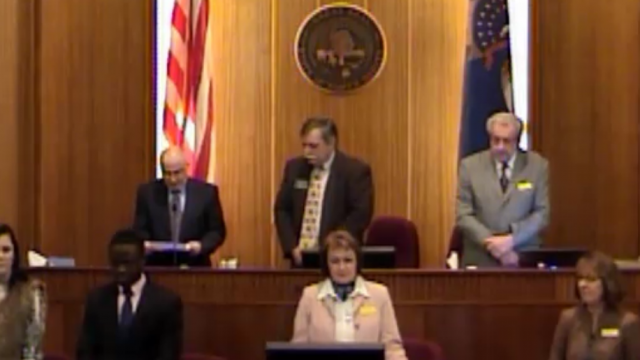John Andrist: To Pray Or Not To Pray

Public prayer is mostly lip service for most of us, I believe. I know there are many times when I’ve stood for a public invocation, sat down, and instantly forgot what was said.
But there are exceptions. I looked forward to the daily prayer that opened each session of the state Senate.
[mks_pullquote align=”right” width=”300″ size=”24″ bg_color=”#000000″ txt_color=”#ffffff”]Although courts have protected prayer in our legislatures and in Congress, it also made me feel just a little uncomfortable for the practice of paying the small honorarium given to guests who spoke those words at the capitol.[/mks_pullquote]
There is an awesome sense of responsibility you feel when you are about to vote on so many things that affect so many people.
That prayer was a quiet moment I felt I needed. And I always concentrated on every word.
Although courts have protected prayer in our legislatures and in Congress, it also made me feel just a little uncomfortable for the practice of paying the small honorarium given to guests who spoke those words at the capitol.
I thought we should not spend tax dollars for “pay to pray”. We always had many legislators who would be happy to provide the words, if we were short of volunteers.
All this came to mind this week when the North Dakota House accepted, then rejected prayer by a Muslim guest.
I guess it would be okay if we had Muslim legislators, which is doubtful. We likely have had an occasional agnostic legislator at one time or another, but none that I know have requested being excused.
Many schools have quit having invocations at school commencement exercises, which I think should be decided by students, rather than school boards.
The question seems to have turned on a sense of political correctness, more than anything else.
My sense is that although we are predominantly Christians in this country we should always seek ways to be respectful to those outside the faith, but in a way that does not deny the majority the right to practice what they believe.
We have a constitutional right to practice our faith, as well as to practice dissent.




